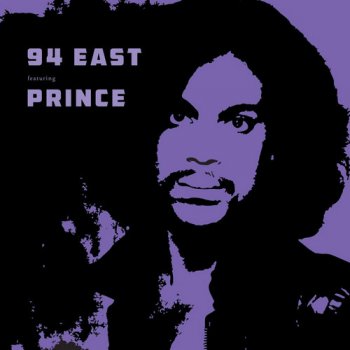GOOD OLD ROCK’N’ROLL!!! «Exclusive for Lossless-Galaxy collection» Part 3 (27 × CD • Remastered • 1960-2025)
Performer: Various Album / collection: «OLDER! Rock’N’Roll — 1St Press — Remastered» Part 3 Label: (c)(p) 1960-2025 生産ヨーロッパとアメリカ Source: Rip by KoGGaN™ scans by inet… Official DR value: •12•12•7•14•11•6•11•8•8•7•8•7•8•12•10•8/8•6•9•8•10•10•9•8•7•7•9•8• Catalog (Barcode): much… Genre / Style: Pop, Rock, Classic Rock, Pop Rock, Rock’N’Roll, Glam, AOR Year (info): 1960-2025 (249 × CD, 1St Press + Remastered, Collection—) Format: WV (image + .cue) Bitrate: lossless Covers: in archive Amount of
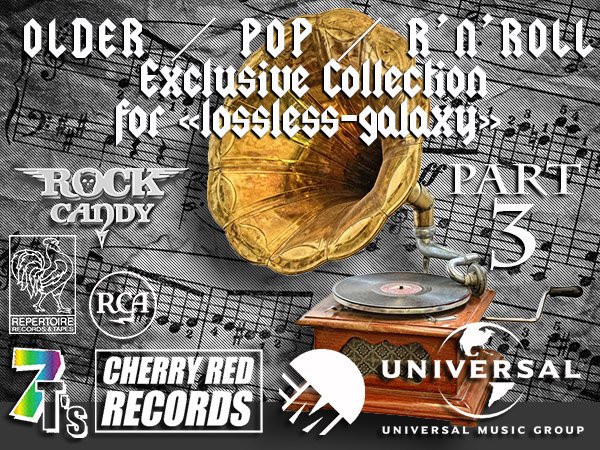
GOOD OLD ROCK’N’ROLL!!! «Exclusive for Lossless-Galaxy collection» Part 3 (27 × CD • Remastered • 1960-2025)
Performer: Various Album / collection: «OLDER! Rock’N’Roll — 1St Press — Remastered» Part 3 Label: (c)(p) 1960-2025 生産ヨーロッパとアメリカ Source: Rip by KoGGaN™ scans by inet… Official DR value: •12•12•7•14•11•6•11•8•8•7•8•7•8•12•10•8/8•6•9•8•10•10•9•8•7•7•9•8• Catalog (Barcode): much… Genre / Style: Pop, Rock, Classic Rock, Pop Rock, Rock’N’Roll, Glam, AOR Year (info): 1960-2025 (249 × CD, 1St Press + Remastered, Collection—) Format: WV (image + .cue) Bitrate: lossless Covers: in archive Amount of
05 10, 2025
GOOD OLD ROCK’N’ROLL!!! «Exclusive for Lossless-Galaxy collection» Part 2 (111 × CD • Remastered • 1960-2025)
Performer: Various Album / collection: «OLDER! Rock’N’Roll — 1St Press — Remastered» Part 2 Label: (c)(p) 1960-2025 生産ヨーロッパとアメリカ Source: Rip by KoGGaN™ scans by inet… Official DR value: •8/8•12•6/5•14•6•12•11•10•6•11•11•9•13•11•11•13•8/7•8•8•5•6•10• •11•9•7•6•9/9•7•4•4•6•7•7•7•8•8•8•7•7•9•7•12•6•5•7•5•8•7•8•8•8•6•11•10•10•10•7•12•13•6•8• •12•5•7•13•9•7•7•12•12•12•8•6•7•6•10•7•6•12•6•12•6•7•7•13•12•10•7•6•6•9•5•11•6•8•9•12•14• •11•11•14•6•9•11•11/11•8•11•12•13•11/10•12• Catalog (Barcode): much…
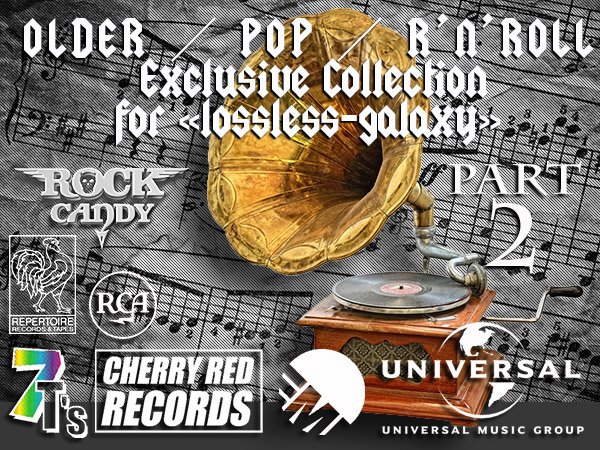
GOOD OLD ROCK’N’ROLL!!! «Exclusive for Lossless-Galaxy collection» Part 2 (111 × CD • Remastered • 1960-2025)
Performer: Various Album / collection: «OLDER! Rock’N’Roll — 1St Press — Remastered» Part 2 Label: (c)(p) 1960-2025 生産ヨーロッパとアメリカ Source: Rip by KoGGaN™ scans by inet… Official DR value: •8/8•12•6/5•14•6•12•11•10•6•11•11•9•13•11•11•13•8/7•8•8•5•6•10• •11•9•7•6•9/9•7•4•4•6•7•7•7•8•8•8•7•7•9•7•12•6•5•7•5•8•7•8•8•8•6•11•10•10•10•7•12•13•6•8• •12•5•7•13•9•7•7•12•12•12•8•6•7•6•10•7•6•12•6•12•6•7•7•13•12•10•7•6•6•9•5•11•6•8•9•12•14• •11•11•14•6•9•11•11/11•8•11•12•13•11/10•12• Catalog (Barcode): much…
05 10, 2025
GOOD OLD ROCK’N’ROLL!!! «Exclusive for Lossless-Galaxy collection» Part 1 (111 × CD • Remastered • 1960-2025)
Performer: Various Album / collection: «OLDER! Rock’N’Roll — 1St Press — Remastered» Part 1 Label: (c)(p) 1960-2025 生産ヨーロッパとアメリカ Source: Rip by KoGGaN™ scans by inet… Official DR value: •8•11•12/12•8•12/12•8•9•11/11•10•11•11•9/9•7/8•7•7•10•11•10•12• •12•13•12•11•5•7•12•10•11•7/8•9•10•10•10•7•10•9•10•12•10•12•7/8/7•7•11•10/9•12•7•8•10/12• •9/9•11•9/8•8•8•11/12•8•10•7•9•6•8•9•8•7•9•7•10•7•10•11•9•8•8•7•11•12•9•11•8•11•11/11•12•
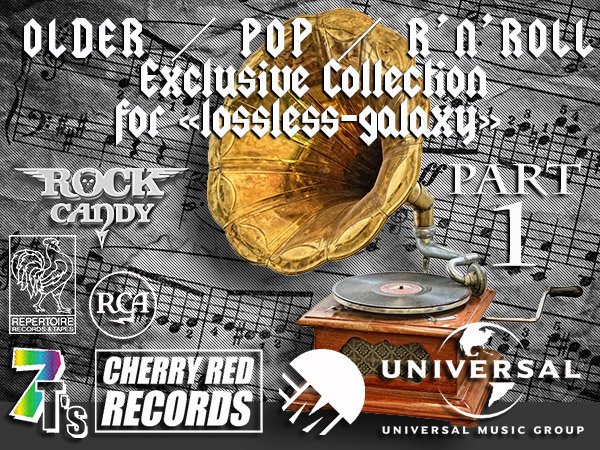
GOOD OLD ROCK’N’ROLL!!! «Exclusive for Lossless-Galaxy collection» Part 1 (111 × CD • Remastered • 1960-2025)
Performer: Various Album / collection: «OLDER! Rock’N’Roll — 1St Press — Remastered» Part 1 Label: (c)(p) 1960-2025 生産ヨーロッパとアメリカ Source: Rip by KoGGaN™ scans by inet… Official DR value: •8•11•12/12•8•12/12•8•9•11/11•10•11•11•9/9•7/8•7•7•10•11•10•12• •12•13•12•11•5•7•12•10•11•7/8•9•10•10•10•7•10•9•10•12•10•12•7/8/7•7•11•10/9•12•7•8•10/12• •9/9•11•9/8•8•8•11/12•8•10•7•9•6•8•9•8•7•9•7•10•7•10•11•9•8•8•7•11•12•9•11•8•11•11/11•12•
05 10, 2025
Жанры
Lossless Galaxy Release
Русская музыка
--Поп
--Рок
--Панк
--Альтернатива
--Металл
--Рэп, Хип-Хоп, R'n'B
--Джаз и Блюз
--Фолк
--Шансон, Авторская песня
--СССР
Зарубежная музыка
--Pop
--Rock
--Hard Rock
--Progressive & Art-Rock
--Pop-Rock & Soft Rock
--Instrumental Rock
--Heavy, Traditional, Industrial Metal
--Power, Gothic, Sympho Metal
--Thrash, Speed, Groove, Modern Metal
--Death, Melodic Death, Doom, Dark Metal
--Black, Pagan, Folk, Viking Metal
--Alternative
--Punk
--Disco, Eurodance
--Rap, Hip Hop, R'n'B
--Reggae, Ska, Dub
--Jazz, Blues, Soul
--Folk, Country, Ethnic
--Electronic, Ambient, New Wave
--House, Techno, Trance
Другие жанры
--New Age, Relax, Meditative & Flamenco
--Chillout, Lounge, Downtempo, Trip-Hop
--Drum & Bass, Jungle, Breakbeat, IDM
--Classical / Классическая музыка
--Soundtrack
--Музыкальные сказки
Vinyl Rip
HI-Res / DVD-Audio / DTS
--SACD
--DSD
--DVD-Audio
Сборники Lossless-Galaxy
Альбомы 2022
Альбомы 2023
Альбомы 2024
Теги
1st Press 2022 2023 2024 2025 70... AOR Black Metal Blues Blues Rock Bootleg Series Classic Rock Death Metal Discography Exclusive for Lossless-Galaxy Folk Rock Fusion Hard Rock Heavy Metal Hi-Res Japanese Edition Jazz Jazz Rock lossless Melodic Death Metal Melodic Rock Modern Electric Blues Pop Pop Rock Power Metal Prog Rock Progressive Metal Progressive Rock Psych Rock Psychedelic Rock Rock SACD Symphonic Metal Thrash Metal Дискографии от KoGGaN
Архивы
Опрос
В каком формате хотели бы видеть релизы на сайте ?
 Автор: sirk, 11 октября 2023, Комментариев: 0, Просмотров: 468
Автор: sirk, 11 октября 2023, Комментариев: 0, Просмотров: 468Prince – Up All Nite with Prince The One Nite Alone Collection (2020) 4CD
Artist: Prince
Title Of Album Up All Nite with Prince The One Nite Alone Collection
Year Of Release: 2020
Label (Catalog#) NPG [19075976622]
Country: USA
Genre: Jazz, Funk / Soul, Pop
Quality: FLAC (tracks+cue,log)
Bitrate: Lossless
Total Time: 03:35:49
Total Size: 1.28Gb(+3%)(covers)
Title Of Album Up All Nite with Prince The One Nite Alone Collection
Year Of Release: 2020
Label (Catalog#) NPG [19075976622]
Country: USA
Genre: Jazz, Funk / Soul, Pop
Quality: FLAC (tracks+cue,log)
Bitrate: Lossless
Total Time: 03:35:49
Total Size: 1.28Gb(+3%)(covers)
Tracks:
--------
CD 1. One Nite Alone... Solo Piano And Voice By Prince:
01. One Nite Alone... (3:35)
02. U’re Gonna C Me (5:16)
03. Here On Earth (3:22)
04. A Case Of U (3:39)
05. Have A ♥ (2:03)
06. Objects In The Mirror (3:26)
07. Avalanche (4:24)
08. Pearls B4 The Swine (3:00)
09. Young And Beautiful (2:44)
10. Arboretum (2:16) - track time is 3:26 including silence after track
CD2. One Nite Alone... Live!:
01. Rainbow Children (11:45)
02. Muse 2 The Pharaoh (4:49)
03. Xenophobia (contains unlisted lyrics from Silicon) (12:39)
04. Extraordinary (5:01)
05. Mellow (4:30)
06. 1+1+1 Is 3 (6:05)
07. The Other Side Of The Pillow (4:47)
08. Strange Relationship (4:12)
09. When You Were Mine (3:47)
10. Avalanche (6:04)
CD3. :
01. Family Name (7:16)
02. Take Me With U (2:53)
03. Raspberry Beret (3:26)
04. The Everlasting Now (7:40)
05. One Nite Alone... (1:12)
06. Adore (5:32)
07. I Wanna B Ur Lover (1:21)
08. Do Me, Baby (1:56)
09. Condition Of The Heart (Interlude) (0:39)
10. Diamonds & Pearls (0:40)
11. The Beautiful Ones (2:10)
12. Nothing Compares 2 U (3:47)
13. Free (1:06)
14. Starfish & Coffee (1:07)
15. Sometimes It Snows In April (2:40)
16. How Come U Don’t Call Me Anymore (5:06)
17. Anna Stesia (13:12)
CD4.One Nite Alone... The Aftershow: It Ain’t Over!:
01. Joy In Repetition (10:55)
02. We Do This (4:41)
03. Medley: Just Friends (Sunny) / If You Want Me To Stay (4:26)
04. 2 Nigs United 4 West Compton (6:14)
05. Alphabet Street (2:54)
06. Peach (Xtended Jam) (11:18)
07. Dorothy Parker (6:16)
08. Girls & Boys (6:59)
09. The Everlasting Now (Vamp) (1:49)
All thanks to original releaser
--------
CD 1. One Nite Alone... Solo Piano And Voice By Prince:
01. One Nite Alone... (3:35)
02. U’re Gonna C Me (5:16)
03. Here On Earth (3:22)
04. A Case Of U (3:39)
05. Have A ♥ (2:03)
06. Objects In The Mirror (3:26)
07. Avalanche (4:24)
08. Pearls B4 The Swine (3:00)
09. Young And Beautiful (2:44)
10. Arboretum (2:16) - track time is 3:26 including silence after track
CD2. One Nite Alone... Live!:
01. Rainbow Children (11:45)
02. Muse 2 The Pharaoh (4:49)
03. Xenophobia (contains unlisted lyrics from Silicon) (12:39)
04. Extraordinary (5:01)
05. Mellow (4:30)
06. 1+1+1 Is 3 (6:05)
07. The Other Side Of The Pillow (4:47)
08. Strange Relationship (4:12)
09. When You Were Mine (3:47)
10. Avalanche (6:04)
CD3. :
01. Family Name (7:16)
02. Take Me With U (2:53)
03. Raspberry Beret (3:26)
04. The Everlasting Now (7:40)
05. One Nite Alone... (1:12)
06. Adore (5:32)
07. I Wanna B Ur Lover (1:21)
08. Do Me, Baby (1:56)
09. Condition Of The Heart (Interlude) (0:39)
10. Diamonds & Pearls (0:40)
11. The Beautiful Ones (2:10)
12. Nothing Compares 2 U (3:47)
13. Free (1:06)
14. Starfish & Coffee (1:07)
15. Sometimes It Snows In April (2:40)
16. How Come U Don’t Call Me Anymore (5:06)
17. Anna Stesia (13:12)
CD4.One Nite Alone... The Aftershow: It Ain’t Over!:
01. Joy In Repetition (10:55)
02. We Do This (4:41)
03. Medley: Just Friends (Sunny) / If You Want Me To Stay (4:26)
04. 2 Nigs United 4 West Compton (6:14)
05. Alphabet Street (2:54)
06. Peach (Xtended Jam) (11:18)
07. Dorothy Parker (6:16)
08. Girls & Boys (6:59)
09. The Everlasting Now (Vamp) (1:49)
All thanks to original releaser
Внимание! У Вас нет прав для просмотра скрытого текста.
Похожие новости:
Комментарии отсутствуют
Добавить комментарий!
Информация
Посетители, находящиеся в группе Гости, не могут оставлять комментарии к данной публикации.



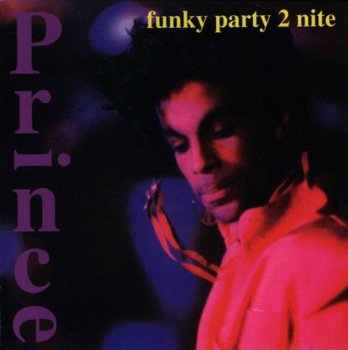
![Prince - Ultimate [2CD] (2006) [FLAC]](/uploads/posts/2020-09/1600021639_prince-ultimate-2cd-2006-flac.jpg)
![Prince - Sign O' The Times (Super Deluxe) (2020) [Hi-Res]](/uploads/posts/2020-10/1601888422_prince-sign-o-the-times-super-deluxe-2020-hi-res.jpg)
